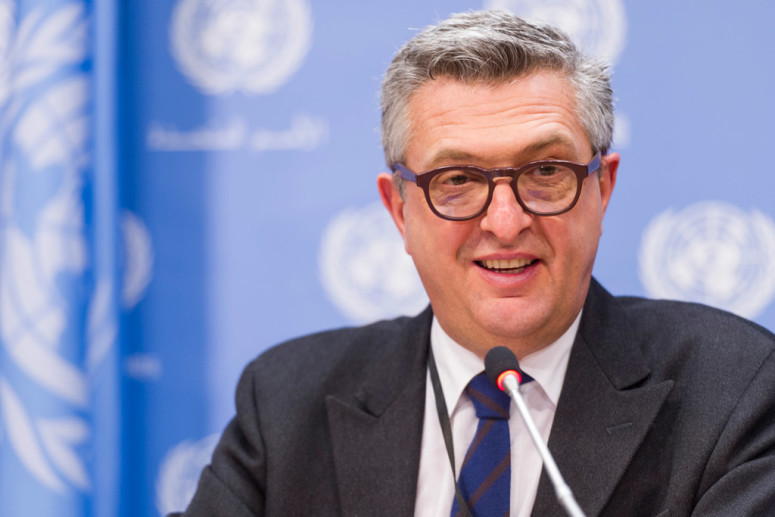Pakistan demands plan for repatriation of Afghan refugees
Islamabad, Pakistan: Pakistan has demanded United Nations to design a time bound plan for repatriation of Afghan refugees as their stay in Pakistan is compounding security issues for Pakistan.
Pakistan demanded a time bound plan for repatriation of Afghan refugees while in a meeting of Sartaj Aziz, Adviser to the Prime Minister on Foreign Affairs with UN High Commissioner for Refugees, Filippo Grandi here on Tuesday.
Filippo Grandi is visiting Pakistan from 21-24 June 2016. This is Grandi’s first visit to Pakistan after assuming office of the High Commissioner. He visited Iran and Afghanistan before arriving in Pakistan. The objective of the visit, coinciding with the World Refugee Day, is to show solidarity with the refugees and the host countries, and to exchange views on addressing the Afghan refugee situation.
According to a press statement issued by the Foreign Office of Pakistan, Sartaj Aziz emphasized that repatriation of all Afghan refugees was a priority. He noted that, for over three decades, Pakistan has shown exemplary goodwill and generosity by hosting millions of Afghan refugees.
However, given the immense socio-economic, development and environmental challenges, continued presence of Afghan refugees in Pakistan was not a viable option.
The security dimension added to the challenges. It also necessitated more effective border management. Political transition in Afghanistan two years ago provided an opportunity for the refugees to return to their homeland and be part of the national rebuilding process in Afghanistan.
It was considered that repatriation of refugees would contribute to the stability and development of Afghanistan and the region.
It was noted that the pace of repatriation was extremely slow, attributed to the perennial shortage of resources, absence of an effective reintegration plan, and lack of international attention and support among other factors. The need for a time bound plan for repatriation was underscored by the Adviser. Both sides agreed that addressing the current crises elsewhere should not divert attention and funding from the Afghan refugee situation.
It was underlined that Pakistan’s future policy and decisions would depend on the corresponding actions and plans of the Afghan Government, UNHCR and international donors. Several steps such as expedited returns, concrete international funding and incentives for returnees were required to ensure success in this collective endeavor in which all stakeholders must shoulder their responsibilities.
The High Commissioner commended Pakistan’s historic contribution and hospitality in hosting the Afghan refugees for 37 years and evinced strong desire to work together to promote a solution to this protracted refugee caseload. He shared UNHCR’s efforts and plans to mobilize international attention, support and funding for the management and return of Afghan refugees. The Adviser assured the High Commissioner of Pakistan’s support and cooperation.

